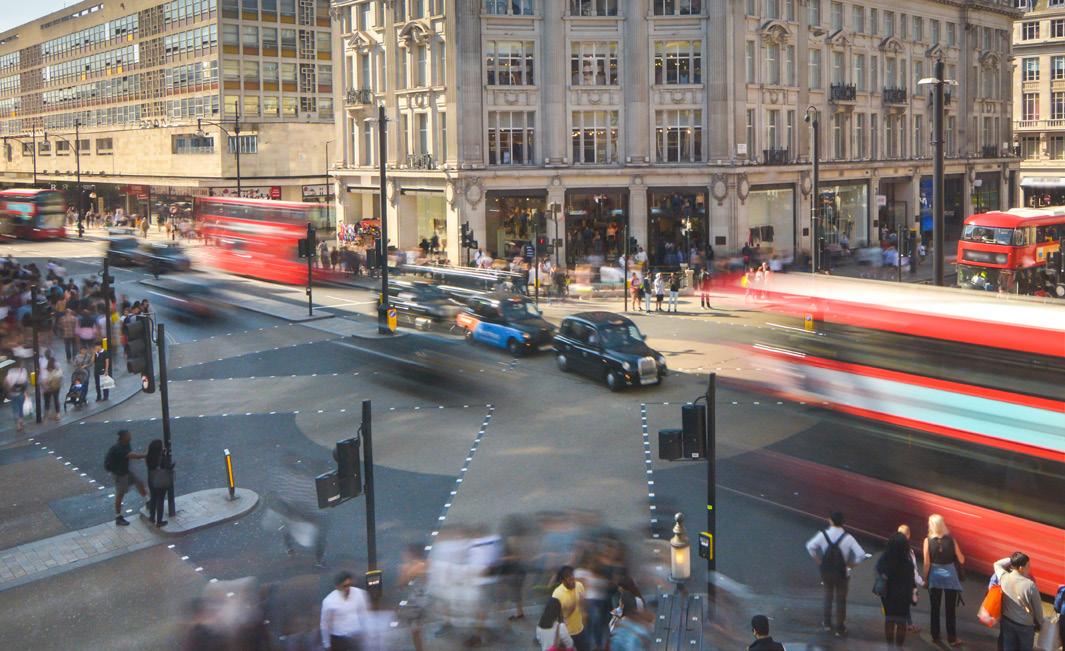
3 minute read
The Double Whammy
The UK is struggling to recover from two huge shocks – the pandemic and Brexit. Europe correspondent Andrew Kenningham reports on the economic outlook.
There’s been mixed news on the UK economy recently. On the plus side, the pandemic has receded. The number of new coronavirus cases has been running at quite high levels but most of them are among schoolchildren, who have few symptoms. Both the intensive care admissions and fatality rates are low. Most adults are now vaccinated, and a booster programme is being rolled out so, for now at least, it looks as if the worst is behind us.
Advertisement
A vaccine-driven rebound
As public health measures have been lifted, the economy has bounced back. Restaurants and nightclubs are full and the number of people going to cinemas finally reached its pre-pandemic level in October – although largely because of the fantastic new Bond movie.
The strength of the recovery has given the finance minister, Rishi Sunak, more money to play with in the latest annual budget. However, there’s also been some bad news. The growth rate inevitably slowed as activity got closer to normal, but the slowdown has been more abrupt than many expected. Businesses have been hit by three distinct problems.
A trio of problems
The first is a shortage of components, notably of electronic goods, which has made life difficult for manufacturing companies. In particular, the semiconductor chip shortage has forced some auto firms to temporarily close their production lines. Second, the price of gas has shot up because of unusual weather patterns, surging demand and the reluctance of Russia to increase the supply of gas to Europe. This has forced electricity companies to jack up their prices and led to a wave of bankruptcies among small energy companies and in sectors such as fertiliser production. And third, some companies are struggling to find staff. The most high-profile cases are the shortages of truck drivers, agricultural workers, meatpackers, and care workers. Many countries are experiencing labour shortages as they come out of the pandemic because some people have reconsidered their priorities during lockdowns and decided not to return to work or are still anxious about doing so. In the UK, these problems have been exacerbated by Brexit.
Brexit, schmexit
European Union citizens are permitted to cross national borders without any paperwork so, until recently, people could be attracted to work in the UK from all over the continent. But when Brexit was finalised at the beginning of 2021, things became harder. Workers who had returned to their home countries during the pandemic found it harder to return, and some were just reluctant to do so. This is having all sorts of knock-on effects. For example, a shortfall in the number of truck drivers led to temporary petrol shortages which caused long queues (and some fights) at garages. The exodus of abattoir workers has raised concerns that families will not get their traditional British turkeys for Christmas. And many restaurants are struggling to find chefs and waiting staff. The combination of these three supply problems and strong demand has contributed to a big increase in inflation. In fact, the Bank of England’s chief economist recently said inflation would reach 5 per cent next year, which would be its highest rate for a decade.
Back to the 1970s?
There is much talk of “stagflation” – the cocktail of inflation and stagnation that is associated with the 1970s – and this has spawned many amusing articles about flared trousers, big collars, and disco music. For now, it looks unlikely that inflation will get as high as it was in the 1970s – when it peaked at well over 20 per cent, but the UK is heading for a period of “stagflation-lite” where inflation is uncomfortably high and economic growth uncomfortably low. This combination puts central banks in a dilemma.
On one hand, they’d like to raise interest rates to bring inflation down, but on the other hand, they should cut interest rates to boost economic growth. Getting this judgement right will be difficult. In the UK’s case, I think the Bank of England will raise its policy rate soon – perhaps before the end of the year – and increase it further next year. But I doubt that it will rise it very far because the increase in inflation is likely to prove temporary. That, in turn, means that I’m optimistic that the UK will avoid a major new downturn or a slump in property prices. Life will be difficult after the pandemic, but it will not be bad as many feared a year or two ago. And the economy should avoid the worst excesses of inflation and unemployment that we saw in the 1970s and 1980s.

